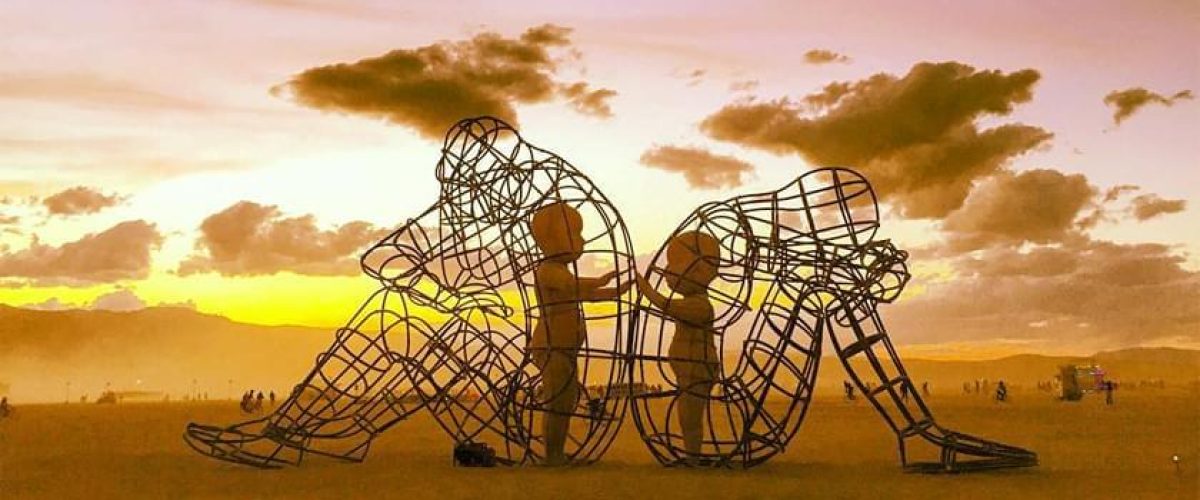We can only be powerful when we are livingfrom the consciousness of the adult, not the unconscious child.
We are born whole, but as soon as we start relating with the world, that wholeness becomes short lived as we are “relationally dependent”. Being relationally dependent means that what becomes acceptable and unacceptable about ourselves depends on the perspective of the family we’re born into. This happens as we learn to disown, deny and suppress those aspects of ourselves that are seen as unacceptable by our family, while those aspects that are approved of, we tend to favour and exaggerate. This pattern of accepting and rejecting different parts of ourselves, depending on the reaction of those around us, comes from the natural desire to be loved and accepted by our parents. This is where the shadows in us are first born.
Childhood is a time when we ideally experience a sense of stability, presence, attunement and love from our family. However, if we feel like we don’t matter, when we are not given a lot of love and time, or when we experience childhood trauma, this emotional distress can be carried into adulthood.
Children and adolescents begin to hide away parts of themselves when they’re told – often wrongly – that parts of themselves are “bad” or “unacceptable.” Then, they carry their secret stuff bag into adulthood, never consciously looking into it. Nevertheless, these hidden aspects still shape their lives.
Childhood trauma can be either soft trauma (general lack of attunement, physical or emotional absence of a parent), or hard trauma (physical, sexual or emotional abuse). Both types of trauma can undermine or destroy our sense of safety and self-worth, and whilst this can manifest in different ways for different people there are some common challenges that those who have experienced childhood trauma may face when navigating their adult life:
- difficulty regulating emotions
- experiencing feelings of shame and guilt
- experiencing feelings of poor self-worth
- a desperate need to gain love and affection from others
- feeling alienated and unable to relate to others
- a fear of intimacy and connection to others
- anxiety and depression
- acting in ways one doesn’t understand and may even forget
- suicidal thoughts
- gap rage (i.e.when you suddenly explode and you have no control over it. It’s like a flick switches, you “gap out” and go nuts)
When childhood trauma remains unattended, coping mechanisms and high-risk behaviour that are often unhealthy in nature can develop such as smoking, drug taking, excessive drinking, self-mutilation, or being in abusive relationships. There is often a fear of being imposed on or losing love, and there may be a difficulty in trusting other people and of feeling of value to people and in the world. Unconsciously our behaviours are desperately trying to find the safety and love we never experienced as a child, whilst trying to protect ourselves from being harmed.
Attachment Theories and Childhood Trauma
Our childhood experiences affect how, as adults, we relate to, or form attachments to others. Ideally, if a child grows up in a supportive, loving family environment (Secure Attachment), they are more likely to be trusting, feel safe and be open and honest with another person. However, if a child doesn’t experience secure attachments as a child, there are several other types of attachment that an adult may form. These include:
- Avoidant Attachment:This attachment type can form when a parent rejects or is not attuned to a child’s needs, abuses or neglects the child physically or emotionally, or is overly dependent on the child for their own emotional health. As the child develops into an adult, they may overly emphasize their need for independence due to the fear of being imposed on, may avoid intimacy and close relationships, and may have difficulty trusting others and sharing their emotions.
- Insecure Attachment:Children who didn’t receive consistent, dependable love from their parents (e.g. loving then rejecting responses, emotionally and physically available then unavailable) will often require validation in their relationships and can frequently feel insecure. Those with this attachment type may be perceived as “clingy” or “needy” when in relationship and display a lack of self-worth, self-confidence and independence.
Do you know what attachment type you tend to act from most?
While childhood trauma can make adult relationships more challenging, trauma doesn’t have to define you. Shadow work helps you to see the shadows that are born from trauma, acknowledge them and love them and start to shift where these painful memories and experiences are stored on your body. This is whyshadow work is the centrepiece of Igniting Your Power. It helps you to shine the light of awareness on the child who is still searching for love, presence, validation and safety and to give the child what it needs so that it can grow up and stop looking for a healthy mum and dad in all relationships.
If you are interested in exploring some of these ideas further, you can join me in my next Living Tantra 8 Week Women’s Course and Ignite your Power, details below.
Event: https://www.facebook.com/events/852023158335130/
More info: [email protected]
Image credit: @just_shot_of_jameson

